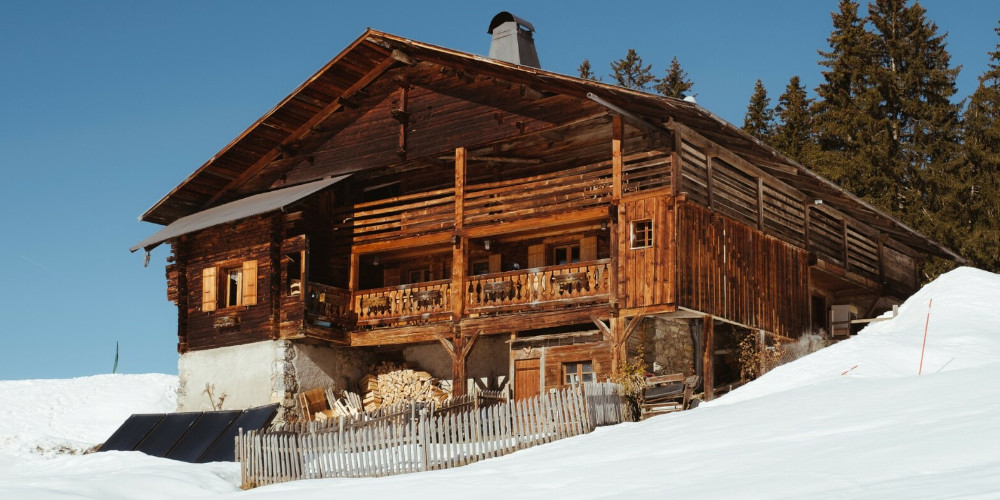An Update on French Mortgage Rates and Availability.
Mortgage holders across Europe have been subjected to significant headwinds over the past 12 months. Last autumn’s disastrous mini-budget in the UK led to a blow-out in mortgage rates and a hit to the pound sterling. UK banks raced to withdraw their products as they struggled with pricing. Central banks across the developed world have been raising interest rates to combat stubborn inflation, with the notable exception of Japan – leading to a dramatic weakening of the yen and investment opportunities in Japanese ski property. But the focus of this short article is French mortgages. During the previous long period of low interest rates many of our alpine property buyers in France sought to finance their acquisitions so that they could put their cash to work in higher yielding assets. Borrowing can also be advantageous from a tax perspective. However, the European Central Bank has raised its benchmark interest rate eleven times in a row to 4%. What can French property buyers who require a mortgage expect this autumn?
French mortgage basics.
There are significant differences between French and UK mortgages. In the UK, fixed rate mortgages have become the norm with 2-5 year or longer maturities. Mortgages are granted based on a multiple of income and the bank’s loan-to-value (LTV) rate. There is no consideration of your ability to service the debt, nor is there any cap on how much interest the bank can charge you. In France the most important factor for securing a mortgage is the debt-to-income ratio, with a focus on salary. No more than 33% of your income can be used for servicing the debt. Whether it is net or gross income varies depending on the lender. Bonuses are rarely taken into consideration. And rather than offering interest only and short-term fixed rate loans, banks try to fix rates for the life of the loan. According to data from the Bank of France, the average loan duration is 23 years.
The third major difference is the protection consumers are offered by the so-called Usury Rate, set by the Bank of France. It governs the maximum level of interest a bank can charge and is based on the Taux Effectif Global or TAEG (equivalent to our APRC) which measures the real rate of interest including additional costs and fees.
Why it has become harder to secure a mortgage on a French second home.
The definition of a usurious loan is whether the TAEG exceeds by one third the average effective rate charged during the previous three months. As the ECB raised rates, French banks found themselves in a squeeze. Their loan rates were capped and only revised quarterly. By the end of summer 2022 banks could not borrow in the wholesale market and lend at a profit because the TAEG cap was below the rate at which they could borrow. Hence many banks withdrew from the lending market. According to the Bank of France total new mortgage loans had dropped to €12bn by July 2023, the lowest level since 2014. Moreover, this has had a significant impact on the non-resident market as the banks have prioritised issuing mortgages to buyers of primary residences, who are considered lower risk. A positive development came at the start of 2023 when the revisions to the lending cap were switched from quarterly to monthly which has enabled the banks to adapt their rates in a more nimble manner. And LTVs are back to more normal levels of 85%.
How about mortgages for French new build properties with VAT recovery?
As most buyers of a French mountain property know, the French government incentivises buyers of new property in tourist areas to rent those properties out when not using them. As long as the owner or the rental agent provides certain “para-hotel” services such as check-in, breakfast, linen etc the owners can benefit from a rebate of the 20% VAT that is included in the price of a new build property. This comes with a 20-year commitment to renting the property out.
According to Fiona Watts of French mortgage specialists International Private Finance, some French banks have concerns that in many cases buyers have not sufficiently understood the difficulty of meeting the criteria and potentially having to repay the VAT, leading to a default on their loan. “Clients need to be aware that VAT can be clawed back if the requirements are not continued to be adhered to.”
Many of our buyers in the French Alps are advised to purchase under a company structure. It can indeed be fiscally advantageous depending on individual circumstances. Most banks are happy to lend to such companies and the TAEG is higher than to an individual borrower. Private banks can be another source of mortgages for certain buyers who can place assets equivalent to 50% of the loan amount with the bank to manage, however they will not lend on off-plan (VEFA) properties.
Has Brexit/Covid-19 had an impact on UK borrowers?
It already seems like ancient history and has been supplanted by subsequent shocks, yet Brexit did lead to some banks withdrawing lending to non-resident Brits, their largest non-resident market. However most banks were able to fix their cross-border paperwork issues and have continued to lend. A larger impact was felt by Covid. Mortgage defaults occurred as many UK buyers found their disappearing rental income was not covering their costs.
What French mortgage options do I have currently?
If you are a salaried individual and can meet the 33% debt to income ratio, there are still some good options available. Likewise, if you are a business owner with a buoyant business with at least 3 years’ history.
International Private Finance highlights a particularly flexible repayment mortgage with a maximum LTV of 80%. It gives borrowers protection against rate increases; they will benefit if rates fall and they have the flexibility to make overpayments without penalty. The 20-year rate currently starts at 4.42% and is capped for the life of the loan at 1% i.e. 5.42%. The rate will be revised once per annum on the anniversary date of the mortgage. It will be based on the Euribor 12 months and will be adjusted accordingly. If the Euribor rate changes, the monthly repayments will not increase straight away but the length of the mortgage term will be extended with the capital repayment going down and the amount of interest repayments going up in proportion with the rate change. However, the maximum the duration can be extended by will be 5 years and, should this be reached, monthly repayments will then be adjusted accordingly after that time. If the rate goes down, there is no limit / cap to how much the rate can go down by.
According to Fiona, “this is an excellent product, and very popular at the moment. It allows you to make early repayments once per annum on the anniversary date without early redemption penalties. You are always required to pay off a minimum of 10% of the initial loan amount”.
If you would like to discuss French mortgages, let us know and we will be happy to connect you to Fiona and her team for a no-obligation chat.


